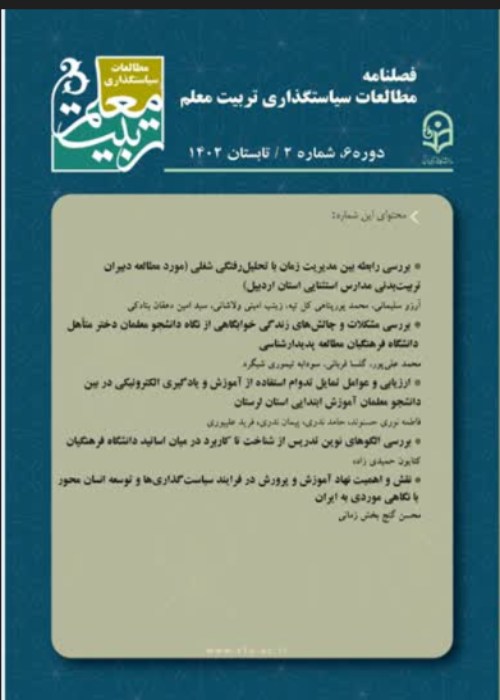Designing and validating the educational maturity model of the faculty members and lecturers of Farhangiān University
The aim of this study was to design and validate the educational maturity model of faculty members and lecturers of Farhangiān University. It was an applied research of exploratory mixed-methods type. The research sample in the qualitative section consisted of 12 specialists in the field of educational maturity (faculty members of Farhangiān University of Tehran, East Azerbāijān, Yazd and West Azerbāijān provinces) who were selected using purposive sampling method. Also, the sample in the quantitative section consisted of 240 professors and faculty members of the Farhangiān University who were selected from among 806 formal and contract instructors of Farhangiān University campuses by random multi-stage cluster sampling method and based on Morgan table. The research instruments included two researcher-made questionnaires on educational maturity of the faculty members. Also, pairwise comparisons were conducted based on the hierarchical analysis process. Content validity was used to assess validity and the reliability of the questionnaire was obtained using Cronbach's alpha coefficient (α = 0.86). The statistical tests including the confirmatory factor analysis, one sample t-test and hierarchical analysis process were used. Findings of the qualitative section included 5 sub-categories of the educational maturity in the form of 1- classroom management, 2- knowledge enhancement, 3- role model, 4- teaching skills, 5- assessment skills, and the validity of the conceptual model was confirmed by the goodness of fit indicators. Also, the field findings showed that the current level of educational maturity of the faculty members of Farhangiān University in terms of categories such as class management, knowledge enhancement and assessment skills was at a relatively desirable level and in terms of the categories of role model and teaching skills, it was in a favorable situation. Based on another finding, the importance of the categories of educational maturity was determined as follows: role model (with a relative weight of 0.394), teaching skills (with a relative weight of 0.384), assessment skills (with a relative weight of 0.364), knowledge enhancement (with Relative weight of 0.354) and class management (with relative weight of 0.350). Finally, the most important practical suggestions of the present study for the managers and staff of Farhangiān University were to have a comprehensive and holistic view towards the educational maturity programs of faculty members and lecturers of this University and to include the educational maturity in the faculty development programs.
- حق عضویت دریافتی صرف حمایت از نشریات عضو و نگهداری، تکمیل و توسعه مگیران میشود.
- پرداخت حق اشتراک و دانلود مقالات اجازه بازنشر آن در سایر رسانههای چاپی و دیجیتال را به کاربر نمیدهد.



